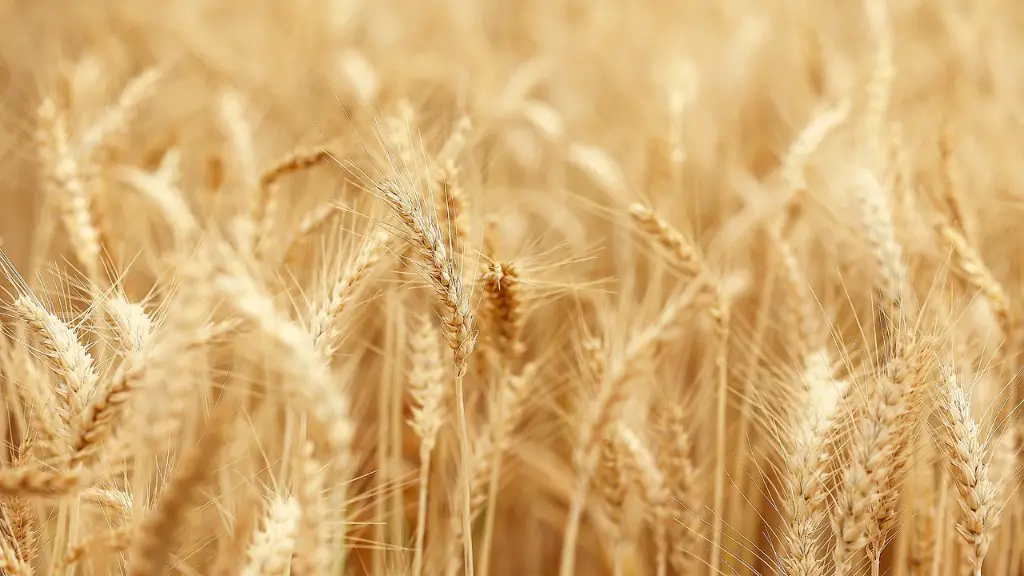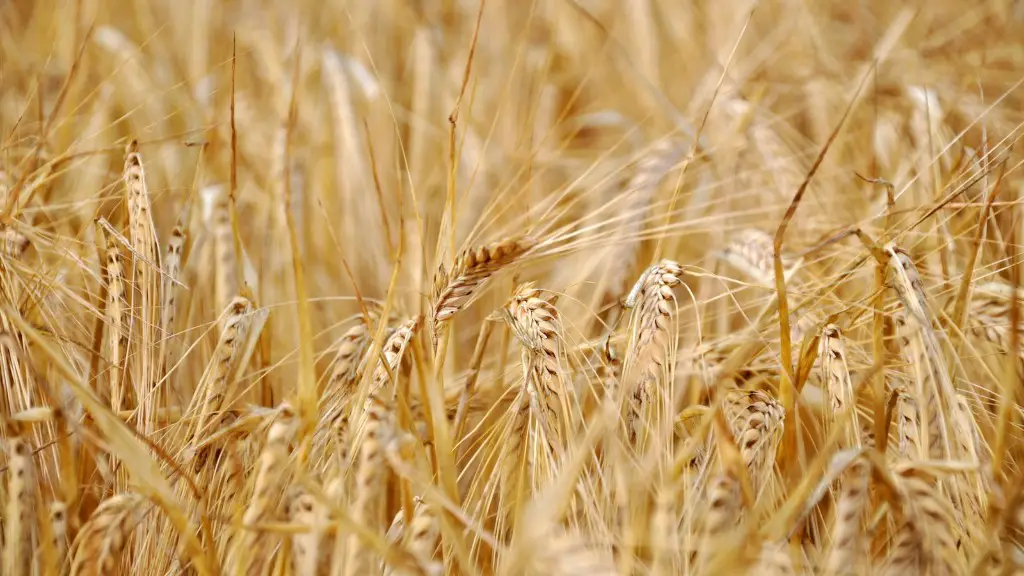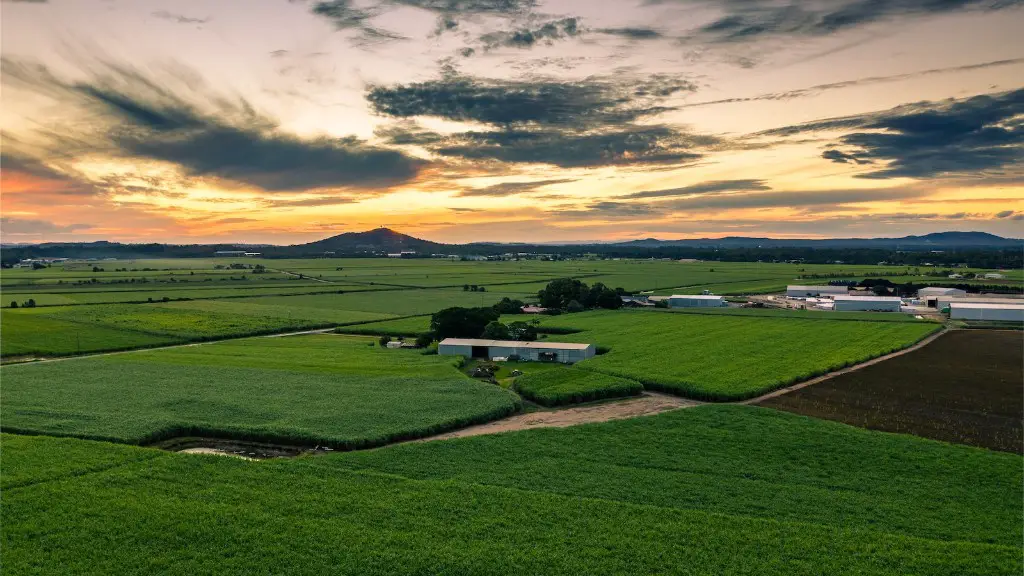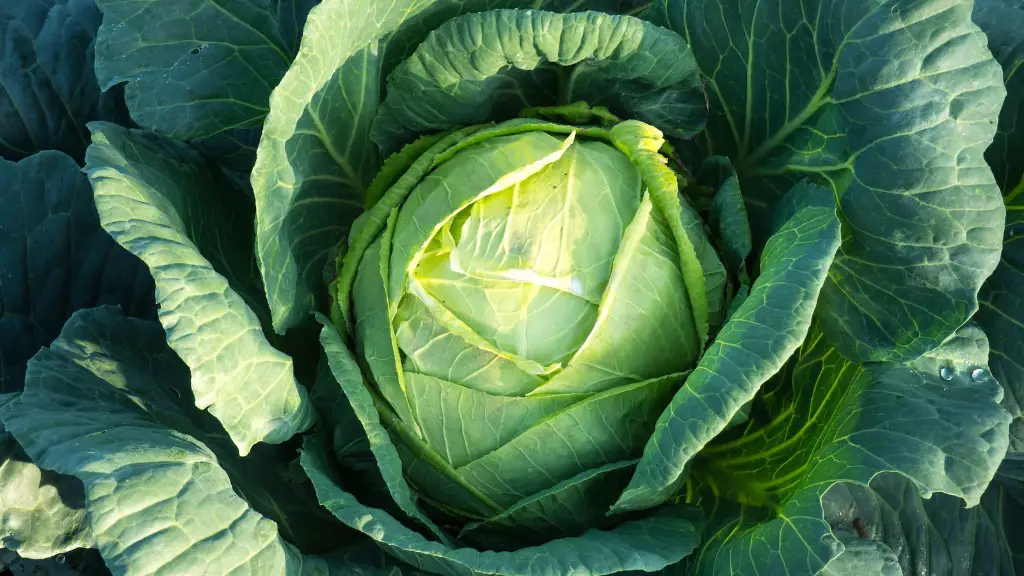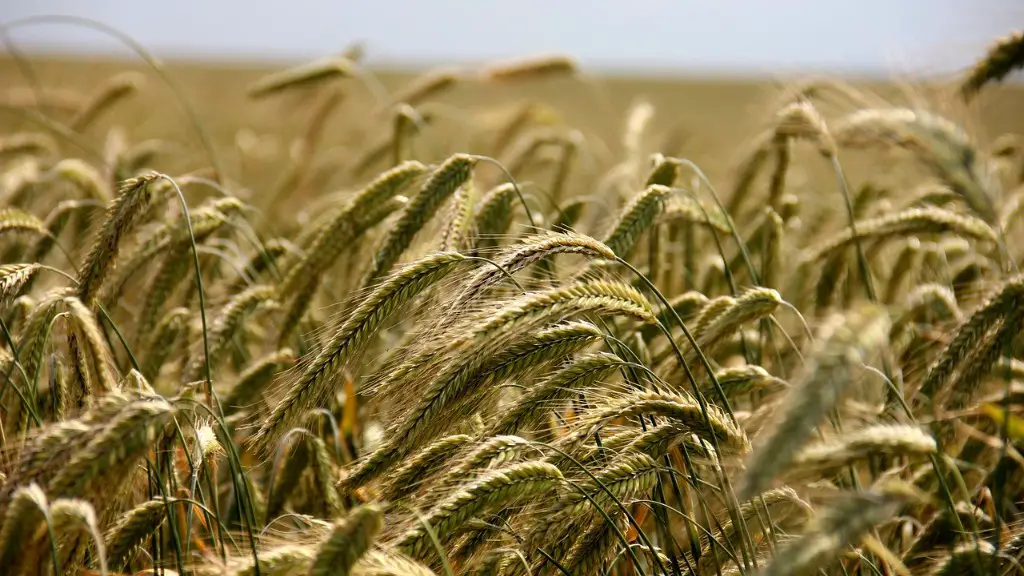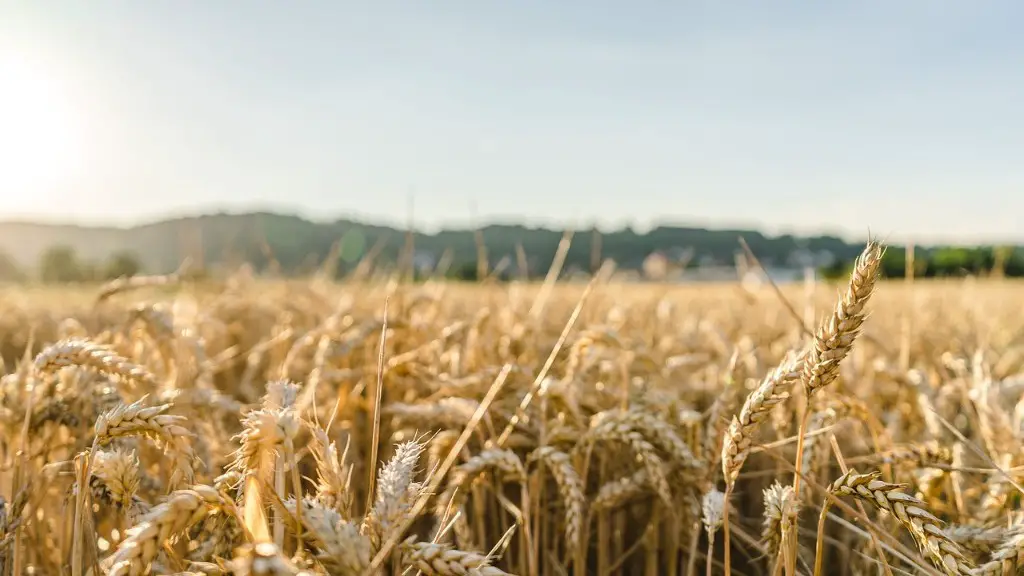Bees are an important part of agriculture. They pollinate crops and help to produce honey. Farmers rely on bees to help them grow healthy crops.
Bees are important for agriculture farming because they help pollinate crops. Pollination is when bees transfer pollen from the male parts of flowers to the female parts. This process helps the flowers to produce fruit and seeds.
Why are bees important for agriculture farming quizlet?
Bees are critical to pollination in the reproductive cycle of plants. Pollination is the transfer of pollen to a stigma, ovule, flower, or plant to allow fertilization, and successful pollination allows plants to produce seeds. Bees play a vital role in this process by carrying pollen from one plant to another, and their importance to pollination cannot be understated.
Bees are important for many reasons. They help produce 1/3 of our food supply, help provide ½ of the world’s fibers, oils, and other raw materials, and help create many medicines.
Why do farmers prefer that bees pollinate their crops
Bees are essential for pollination and have a positive impact on the abundance of fruits, pulses, seeds, berries, and nuts. This has been proven in numerous studies, including apples, blueberries, strawberries, to name a few.
Your organic vegetable garden will show increased production and produce larger and more uniform fruits as a direct result of the honeybees’ tireless work. They are responsible for pollinating ⅓ of the crops that we eat, including almonds, apples, strawberries, and so much more! By having honeybees around, your garden will be more fruitful than ever before!
Are bees good for farming?
Bees are vital to our survival as they help to pollinate most of the crops we eat. In fact, nearly two-thirds of Australia’s agricultural production benefits from bee pollination. Without bees, we would not be able to survive.
Pollinators play a vital role in our ecosystem, providing pollination services that are essential to the reproduction of many plant species. Three-fourths of the world’s flowering plants depend on pollinators, such as bees, bats, beetles, and butterflies, to reproduce. In addition to being critical to the reproductive success of plants, pollinators are also responsible for pollinating many of the crops that we rely on for food. More than 30 percent of the world’s food and flowering plants, including 130 fruits and vegetable plants, depend on insect pollination.
Unfortunately, pollinators are declining at an alarming rate due to a variety of factors, including habitat loss, pesticide use, and climate change. This is a serious problem that threatens the long-term sustainability of our food supply. We must do everything we can to protect pollinators and their habitat.
What would happen if bees went extinct?
Bees are critical for the pollination of many crops, and their disappearance would have a major impact on the availability and diversity of fresh produce. Crops that are not cost-effective to hand- or robot-pollinate would likely be lost, and human nutrition would suffer as a result. The dedication of human hobbyists would be required to keep these crops alive, but it is doubtful that they would be able to maintain the necessary level of pollination without the help of bees.
The loss of bees would have a devastating ripple effect on the entire ecosystem. Plants that bees pollinate would die off, leading to a decline in the population of animals that eat those plants. This would eventually lead to a decline in the human population, as we would not have enough fruit and vegetables to sustain ourselves. The loss of bees would be a disaster for the world.
Why are bees important to ecosystem
Bees are a vital part of the ecosystem as they help pollinate plants and flowers. By doing so, they support the growth of trees, flowers, and other plants which in turn provide food and shelter for creatures large and small. bees help to create complex, interconnected ecosystems that allow for a diverse range of different species to co-exist.
Bees are essential for the pollination of many fruit trees. Without enough pollination, the tree will produce only a few fruits, which can be very disappointing. To ensure a good harvest, you need to make sure there are enough bees around to pollinate your trees.
What is the value of bee pollination to US agriculture?
Between $235 and $577 billion (US) worth of annual global food production relies on the contribution of pollination from honey bees, native bees, and flies. This represents a huge economic value that these creatures deliver each season. We must do everything we can to protect them and their habitats.
The honey bee is a critical pollinator of many agricultural crops in North America and around the world. They are managed by humans for this purpose, and the economic value of their pollination services is estimated to be $15 billion per year in the United States alone.
What do honey bees do for agriculture
Bees are one of the most important animals in the world because they help pollinate plants. Pollination is when animals and insects transfer the pollen from the male parts of a plant to the female parts of the plant so that the plant can reproduce. A third of the world’s food production, which includes many crops that we eat, depend on bees for pollination. This means that bees are essential for our food supply. The next time you see a bee, take a moment to appreciate all the hard work they do for us!
Beekeeping is important for a number of reasons. It provides bee wax, which is used in many industries, including cosmetics and polishing industries. Beekeeping also plays an excellent role in pollination. Honey bees are the best pollinating agents, which help in increasing the yield of several crops.
How does bee farming affect the environment?
Overall, beekeeping has a net-positive impact on the environment, reducing the impacts of protein and sugar systems.Water use is reduced more than land use, and sugar use and transportation are the biggest sources of beekeeping impacts. However, when pollination is taken into account, the net positive impact of beekeeping is even greater.
Our study found that both the number of honeybee colonies and the visitation rate of honeybees to crops increase seed and fruit productivity worldwide. This is likely due to the pollination services that honeybees provide, which are essential for plant reproduction. Therefore, these findings highlight the importance of honeybees as keystone species in agricultural ecosystems.
Conclusion
Bees are important for agriculture for a few reasons. First, they pollinate crops. This means that they help the plants reproduce and create fruit or vegetables. The second reason is that they produce honey. This is a sweetener that can be used in many different ways, including in food and as a medicine.
Without bees, pollination would be a less efficient process and many agricultural crops would not exist.
